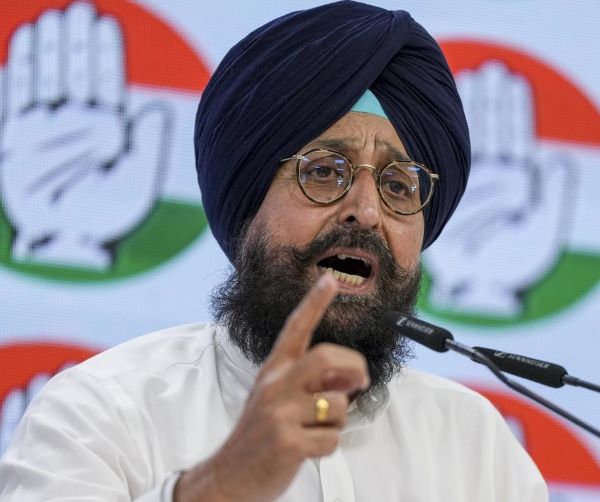 Jalandhar: The Punjab State Scheduled Caste Commission has drawn heavy criticism and controversy for its unprecedented intervention in the recent Tarn Taran byelection, leading to a
Jalandhar: The Punjab State Scheduled Caste Commission has drawn heavy criticism and controversy for its unprecedented intervention in the recent Tarn Taran byelection, leading to a
formal objection from the state’s chief electoral officer (CEO) and accusations of “overreach” from the Punjab Congress.
The controversy escalated when the commission summoned state’s leader of opposition (LoP), Partap Singh Bajwa, to appear on Nov 10, prompting senior Congress members to accuse the
panel of political bias. The commission’s chairman, Jasvir Singh Garhi, a former state president of the Bahujan Samaj Party (BSP),has maintained a highly proactive approach. Garhi has
highlighted his official actions and statements on his social media accounts frequently, posting video clips and photographs of commission hearings.
One of the first disputes arose after the commission summoned the Tarn Taran subdivisional magistrate (SDM),
who was serving as the returning officer (RO), and the deputy commissioner, who was the district electoral
officer (DEO). This followed the commission’s finding that a report provided by the administration regarding
remarks made by Punjab Congress president Amrinder Singh Raja Warring was “unsatisfactory”. The Punjab
CEO’s office cautioned the commission subsequently, writing that summoning these officers during the election
period could “cause interference in the conduct of election and amount to undue influence”. Garhi, however,
posted the pertinent information, including his statements and media coverage of the action, on his Facebook pages.
After Warring’s counsel appeared before the panel on Nov 6 in place of the party president, the commission took
suo motu cognizance of a media report regarding the alleged disrespectful depiction of Sikh martyr Bhai Jaita Ji
and Guru Tegh Bahadur. This led to the summoning of LoP Bajwa to appear personally on Nov 10. In response,
former Punjab assembly speaker Rana K P Singh, a senior Congress member, argued that monitoring election
activity and compliance with the code of conduct was the exclusive job of the Election Commission of India, not
the Punjab Scheduled Castes Commission. He alleged the commission’s actions displayed bias against the
Congress leadership.
The controversy over the Bajwa summons intensified due to the specific religious and cultural implications of the
commission’s action — what has been called the “unprecedented. official bracketing of a Sikh martyr on caste
lines”. While the trend of different caste groups’ claiming Sikh heroes and martyrs on caste lines has increased in
recent decades — a practice contrary to fundamental Sikh doctrine — it is considered unprecedented for a govt
commission to use a caste affiliation officially to assert its authority in a political context.
Furthermore, the text of the order summoning Bajwa reportedly gave precedence to the alleged disrespect
shown to Bhai Jaita Ji over the alleged disrespect to Guru Tegh Bahadur. This inversion — giving a disciple
precedence over the Guru — is also highly unusual. Historical accounts note that Bhai Jaita, who belonged to the
Ranghreta/Mazhabi Sikh background (the lowest rung of the caste ladder), retrieved Guru Tegh Bahadur’s
severed head after his execution in Delhi. Guru Gobind Singh honoured him with the remark: “Ranghreta, Guru
Ka Beta” (Ranghreta, Guru’s son